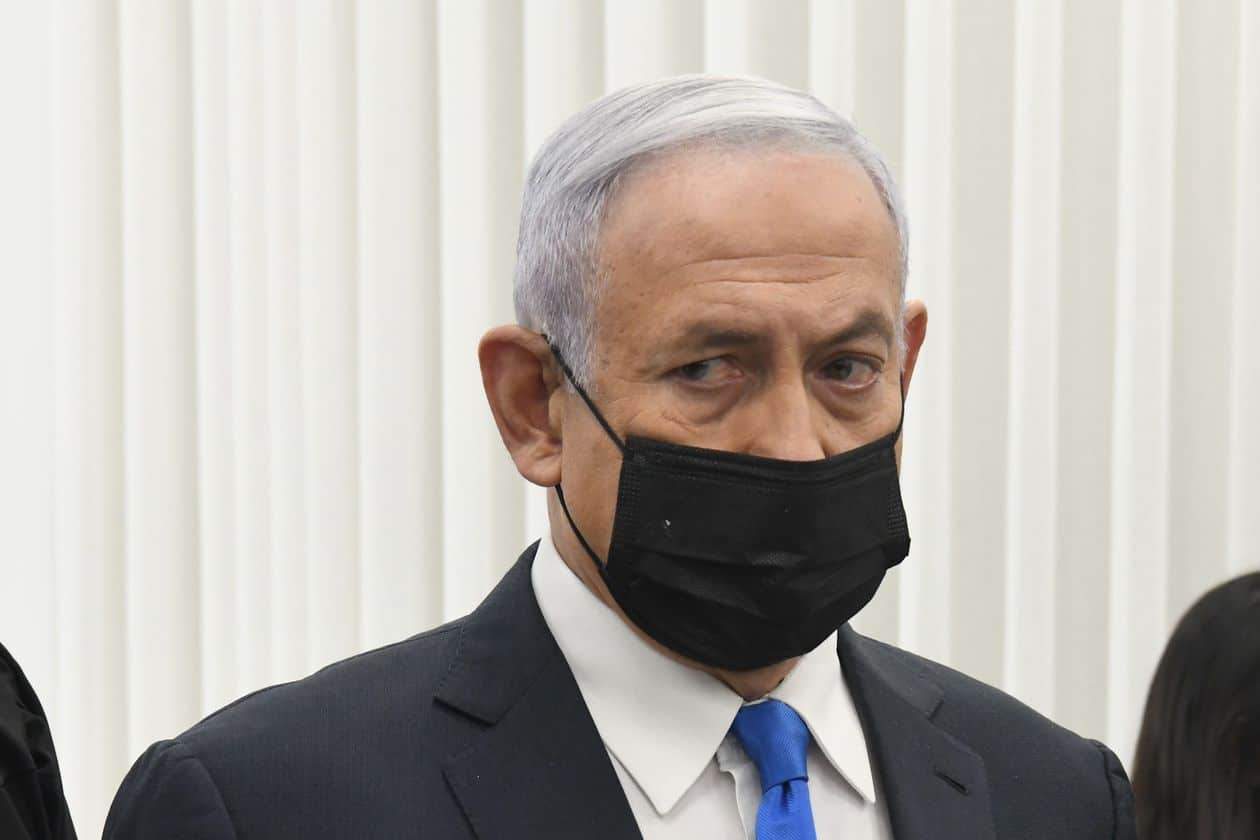Israel’s Netanyahu Formally Pleads Not Guilty as Corruption Trial Resumes

TEL AVIV—Israeli Prime Minister Benjamin Netanyahu formally pleaded not guilty to charges of corruption on Monday, setting the stage for a lengthy legal fight to determine the political fate of the country’s longest-serving leader.
In his second appearance in the Jerusalem courtroom since the trial began in May, Mr. Netanyahu referred to his defense team’s submission to the court denying any wrongdoing. He took notes on a yellow notepad before leaving the hearing after about 20 minutes. He wore a mask due to coronavirus restrictions and sanitized his hands regularly.
The charges center on allegations that Mr. Netanyahu accepted expensive gifts from wealthy businessmen in exchange for official favors and offered two media moguls regulatory and financial benefits in exchange for positive press coverage.
Mr. Netanyahu faces up to 10 years in prison if convicted of bribery, the most serious charge.
Israeli prosecutors have more than 300 witnesses, including three state witnesses who are former close associates of Mr. Netanyahu. They have agreed to testify against him in exchange for ameliorating their own legal troubles.
In an indication of the political stakes involved, his defense team said it needed another four months to prepare, as the judges heard arguments over when witness testimony should begin. The prosecution said it only needed a few more weeks. The court is expected to decide within the next few days.
An early start to witness testimony would coincide with the campaigning for Israel’s fourth election in two years on March 23, serving as a striking reminder to the Israeli public of how Mr. Netanyahu must balance his own vigorous legal defense with his duties of leading the nation during a time of crisis.
Outside the courthouse, hundreds of people protested against Mr. Netanyahu. The crowd shouted slogans and held signs calling him a danger to Israel’s democracy and demanding that he resign.
Mr. Netanyahu had asked his supporters, who came out in large numbers when he first appeared in court last year, to stay at home due to the pandemic.
His trial is expected to last for years and remain a constant feature of the country’s fractious politics.
Mr. Netanyahu is running in the election against a slew of opponents, many of whom have worked with him in the past and who say the premier has been putting his personal interests before the needs of the country.
The embattled leader has argued that the investigations and indictments against him are a coup attempt by law enforcement and justice ministry officials.
He has also tried to use the trial to rally his loyal right-wing and religious base.
“Everyone understands that this is a clear attempt to bring down a strong right-wing prime minister and in doing so crown a left-wing government led by [Yair] Lapid,” Mr. Netanyahu said Sunday, referring to the opposition leader and head of the Yesh Atid party, currently polling second behind Mr. Netanyahu’s Likud party.
The polls show that right-wing voters are little concerned with the corruption allegations against the prime minister, and that Likud is on track to secure the most seats in the next parliament. But Mr. Netanyahu would still need support from other parties to form a government.
Remaining in power will bolster Mr. Netanyahu’s efforts to find support for legislative measures to insulate him from the charges. But he won’t be able to serve as a minister in a governing coalition because he is under indictment, a law that doesn’t apply to prime ministers.
Mr. Netanyahu’s defense has been trying to get the cases against him thrown out, arguing that the prime minister’s indictment was illegal because it didn’t come with written permission from Israel’s attorney general.
The attorney general has said he gave permission to launch the investigations against the prime minister.
Photo: Israeli Prime Minister Benjamin Netanyahu left Monday’s hearing for his trial in a Jerusalem district court after 20 minutes. - REUVEN CASTRO/PRESS POOL
Link: Israel’s Netanyahu Formally Pleads Not Guilty as Corruption Trial Resumes - WSJ




